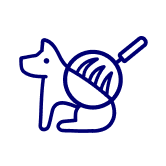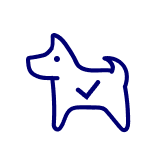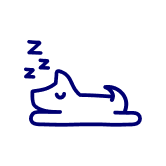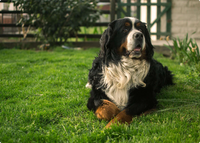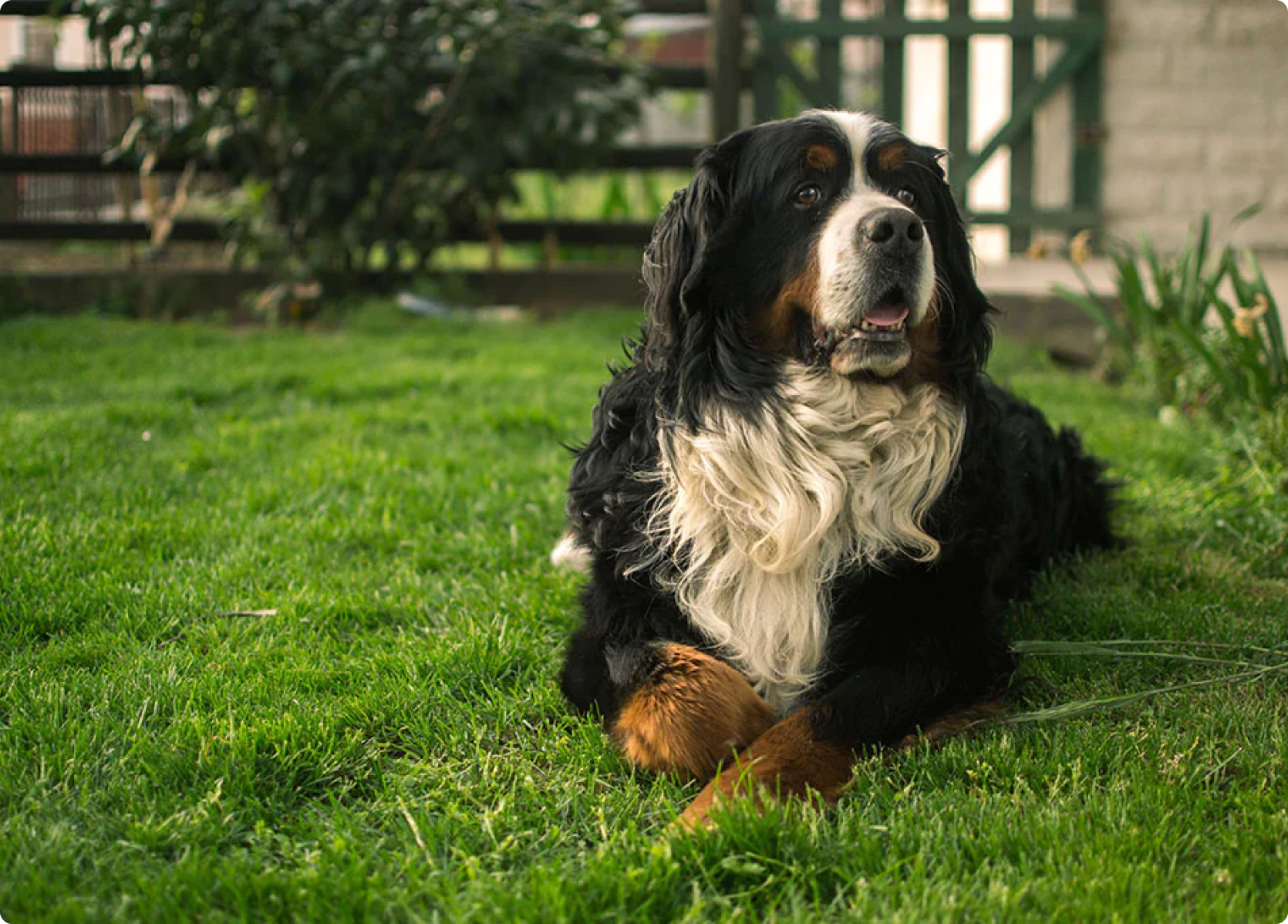
Blog Summary: In this blog, learn if bread is good for dogs and if it has any benefits for them...
Bread is a staple in our diets. From white and wholegrain to sourdough and gluten-free, many of us enjoy a tasty sandwich or a delicious piece of avocado on toast for breakfast.
Now, for many of us pet parents, we want to share what we’re snacking on with our four-legged friends, but is bread something we can split with our pups?
Which leads to the question, can dogs eat bread?
Is Bread Good For Dogs?
In short, bread is not harmful to dogs in small quantities, but it shouldn't become a significant part of your dog's diet as it doesn't provide or offer the necessary nutrients dogs need.
One of the biggest risks when giving your dog bread is the potentially toxic ingredients it’s made with...
Always avoid bread with the following ingredients:
- Raisins
- Grapes
- Garlic
- Nuts (macadamia)
- Seeds
- Onion
- Xylitol
- Chocolate
What Bread Can Dogs Eat?
Bread is primarily made from flour, water, and yeast, which means it is packed with carbohydrates. Now, while dogs need carbohydrates in their diet, they also need other nutrients like protein, fat, vitamins, and minerals that are not often found in bread.
If you've decided to add some bread into your dog's diet, make sure you give it to them in moderation and stick to the following kinds:
- Plain White Bread
- Sour Dough
- Whole Grains
- Rye Bread
Wholegrain bread is higher in fibre, so would make a better choice over plain white bread. Although, too much bread can result in bloating, constipation, diarrhoea or unwanted weight gain, and obesity.
Note: Generally, plain and wholegrain bread is safe for dogs to eat in small amounts, however, this isn't the case for dogs with a history of digestive problems or wheat/gluten allergies. Bread should be avoided.

Can Dogs Eat Garlic Bread?
Garlic bread for dogs is a complete no-go! If consumed in large amounts, garlic can be toxic to dogs and cause gastrointestinal upset and haemolytic anaemia.
It’s not just the garlic that poses a threat when it comes to garlic bread. The butter, herbs, cheese, and large amounts of oil can upset your pup’s stomach and digestive system, too. Not to mention the high volume of calories and fats packed into garlic bread - this human food offers little to no nutritional or health benefits to
your furry friend and can result in garlic poisoning if your pup eats too much.
Can Dogs Eat Toast?
Toasted plain white or wholegrain bread should be okay for dogs in small amounts, however, like garlic bread, if the toast is coated in butter or jam, it's best to avoid it. Butter is extremely fatty and salty, while lots of jams can contain a high salt content or an artificial sweetener, xylitol.
Can Dogs Eat Bread Crust?
Just like with bread, the crust offers your pup little to no nutritional benefits. A small piece of crust every now and then shouldn't cause any bother, as long as it doesn't have any butter, jam, or other toxic foods on it.

Can Dogs Eat Raw Bread Dough?
Under no circumstances should your dog consume raw bread dough!
If you're someone who bakes your own bread, you know first-hand that the smell alone is amazing and incredibly enticing, but uncooked bread is extremely dangerous for our canine companions.
A dog's stomach actually provides the perfect environment for raw bread to rise, expand and release toxic ethanol into your pup's bloodstream. The swelling of the bread can lead to serious digestive issues, and the ethanol could result in alcohol toxicosis.
If you discover your dog has eaten uncooked bread, contact your vet as soon as possible and follow their advice.
Can Bread Help Settle An Upset Stomach In Dogs?
It is a common belief that bread can help settle a dog's upset stomach, but is it true? Well, wholegrain bread is full of fibre, which could help firm up loose stools, but bread doesn't always help settle an upset stomach.
It's important to note that bread should not be used as a long-term solution for digestive problems, and you should consult your veterinarian if your dog is experiencing ongoing digestive issues.
Final Thoughts
Just because dogs can eat some types of bread, it doesn’t mean that they should. Bread offers little to no nutritional value, so adding it to your dog’s diet wouldn’t benefit them at all.
It might be best to try and avoid giving bread to your dog completely. However, if you do want to add bread to your dog’s diet, make sure you only give them plain white, sourdough, or wholegrain bread, and only in moderation. Avoid giving your dog bread containing raisins, grapes, onions, garlic, or artificial sweeteners.
Article Sources:
Pet Gently uses only high-quality sources, including peer-reviewed studies, to support the facts within our articles. We fact-check each article to try to keep our content accurate, reliable and trustworthy.
1. Apple. Animal Poison Control, American Society for the Prevention of Cruelty to Animals.
 Skip to content
Skip to content







